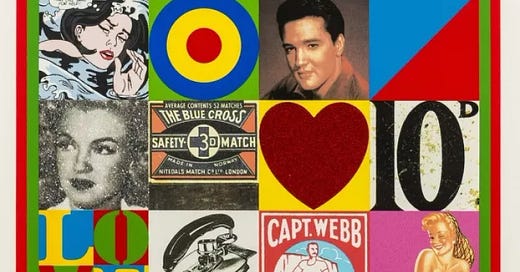Capitalism, it seems, can’t let go of the past. Like a necromancer, it reanimates the corpses of bygone trends, ideologies, and aesthetics, then sells them back to us at a markup. This “capitalist necromancy,” as it were, thrives on a manufactured brand of nostalgia, manipulating our longing for a romanticized past in order to justify its own uninspiring, even grotesque, existence.
Look no further than the endless parade of reboots, sequels, and revivals dominating our screens. Studios exploit our affection for beloved franchises, resurrecting them as hollow shells devoid of their original spark. These cultural zombies, stripped of their authentic “aura” (as Walter Benjamin lamented), not only generate significant profits but also divert attention from the festering wounds of the present: inequality, economic precarity, environmental devastation, and so on.
In contemporary consumer culture, reality has been dissolved and replaced by a proliferation of images and simulations. Capitalist necromancy leverages our human tendency to value and desire objects of the past, transforming nostalgia into a fetishistic relationship within consumer culture. This phenomenon occurs when the object of desire—the past—becomes a substitute for unattainable fulfillment, leading to the fetishization of vintage products and rehashed aesthetics. Retro merchandise and fashion become talismans promising connection to a romanticized past, blurring the lines between reality and fabricated desire.
The hyperreal, as Baudrillard observed, is a state where the boundaries between reality and simulation vanish. In the context of capitalism’s necromancy, it manifests as the resurgence of retro aesthetics, reboots, and historical revisionism. These cultural phenomena evoke a sense of familiarity and comfort, but often present an idealized, distorted version of the past that aligns with neoliberal principles. This hyperreal nostalgia replaces authentic connections to history with simulated experiences, further solidifying the dominance of neoliberal capitalism.
Platforms like TikTok become eerie digital mausoleums, overflowing with attempts to resurrect bygone eras. Young people are curating Y2K mood boards and shelling out hundreds for vintage thrift finds—but to what end? Capitalist necromancy thrives on constructing ideological fantasies around nostalgia, presenting a distorted perception of history that inspires sentimental longing for a time that never truly existed. This construction of nostalgia serves as an ideological fantasy that perpetuates the illusion that capitalism is the solution to our deepest desires and aspirations. By carefully curating imagery and narratives, capitalism creates a hyperreal nostalgia that obscures the contradictions of capitalism and reinforces its supremacy. We're lulled into a comforting loop of the familiar, the past repackaged and resold, effectively anesthetizing our critical faculties.
Capitalist necromancy feeds on our perpetual pursuit of unfulfilled desires. By commodifying nostalgia, it offers the illusion of satisfaction through the consumption of simulated experiences and hyperreal replicas of the past. The result is a meticulously constructed theme park of history, sanitized and curated, erasing the complexities and struggles of the actual past. While these simulations provide a semblance of fulfillment, they ultimately perpetuate the insatiable nature of desire within the capitalist system. In this way, capitalism reinforces the cycle of consumption and sustains its own ideological stranglehold.






I really enjoyed this thank you. I found it via an excellent video by https://substack.com/@finalgirldigital. The commodification of nostalgia, within the capitalist system, is as subject I'm constantly preoccupied with and recently published this https://triumphofentropy.substack.com/p/the-death-of-nostalgia?r=2i4vwu - feels like we have similar thoughts and influences, so would be honoured if were to read it.